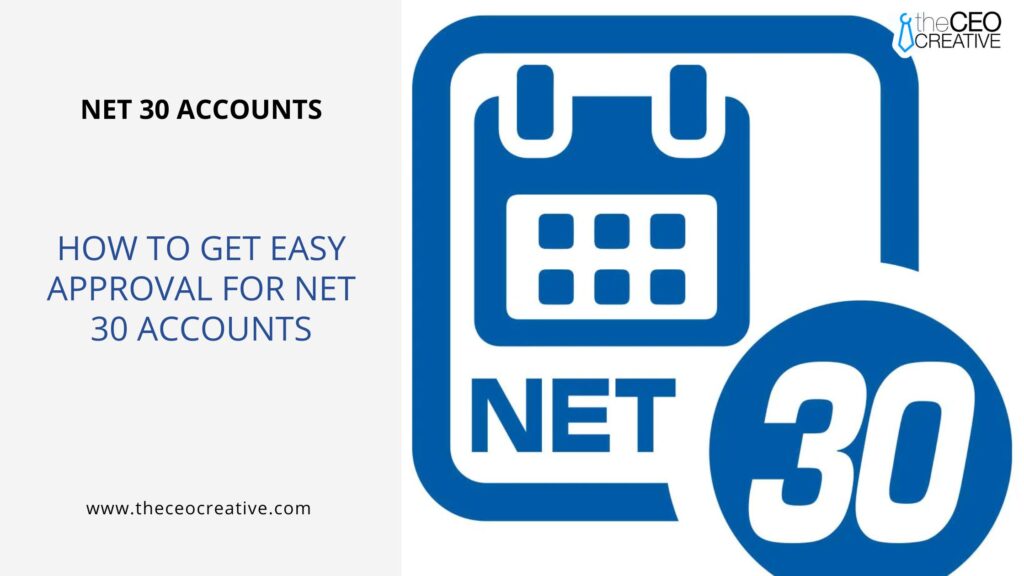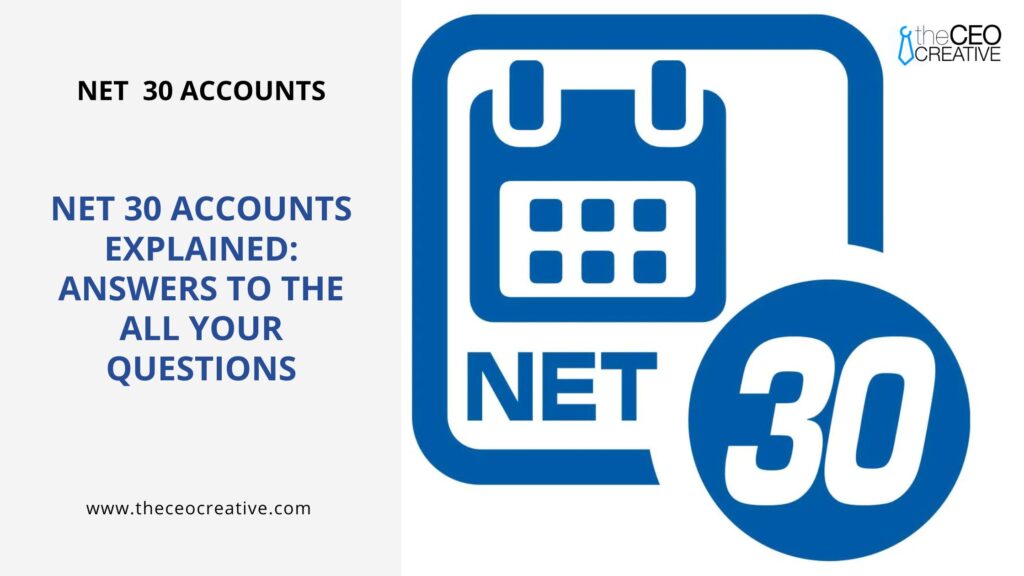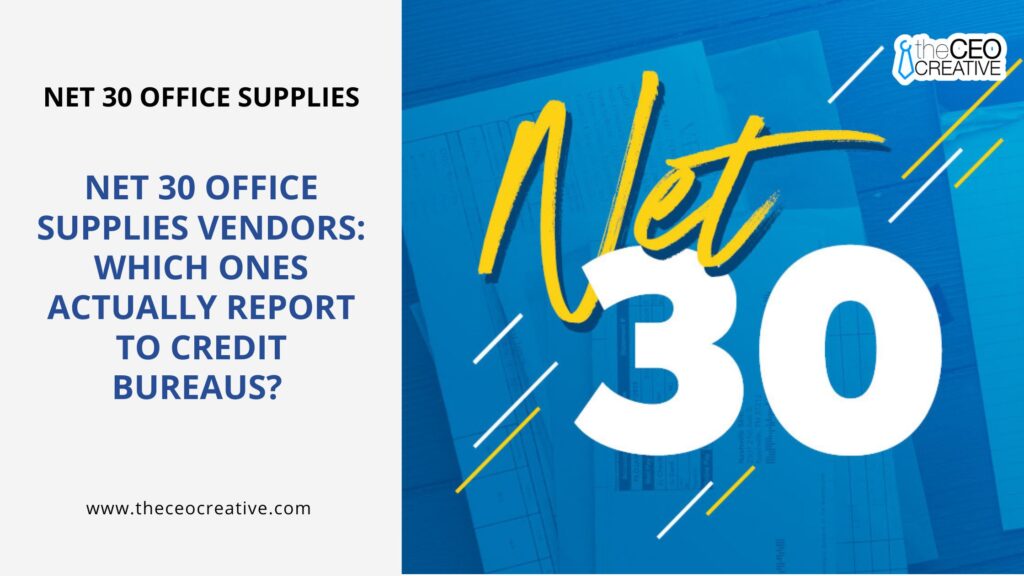Hey there, business owner! Sometimes figuring out business credit can feel a bit like solving a puzzle, doesn’t it? A key part of that puzzle is understanding payment terms like NET 30. If you’ve ever worried about whether paying those NET 30 invoices late could negatively impact your business credit, you’ve come to the right spot. Today, we’re going to dig into how late payments affect your credit score and what that could mean for your company’s financial health. Let’s break this down together!
Understanding NET 30 Payment Terms
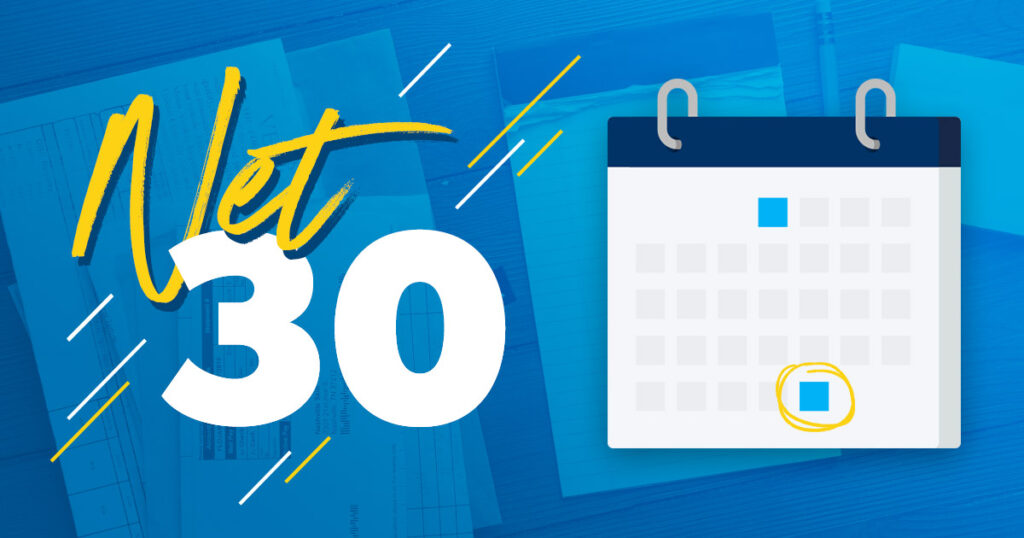
Definition and Purpose of NET 30
NET 30 is a common payment term you’ll see in business deals. It basically gives the buyer a 30-day window to pay the seller in full after they’ve received the goods or service. Businesses really like this term because it gives them some breathing room to manage their cash flow. The idea is to create a win-win situation: the seller gets paid within a sensible timeframe, and the buyer gets some financial wiggle room. This extra time is especially helpful for smaller or mid-sized companies, who might need it to collect money from their own customers before they can pay their own bills.
Common Usage in Business Transactions
NET 30 is actually quite common in the business world, maybe more so than you realize. You see it used across all sorts of industries – from retail and manufacturing to service providers – making it easier to exchange goods without needing to pay right away. This approach helps build strong, lasting business relationships where trust and dependability really matter. Plus, offering NET 30 terms can help businesses keep a good relationship with their suppliers, which is really important when things are always changing. For smaller companies especially, these kinds of payment terms give them more freedom to run smoothly and even grow, without the added pressure of having to pay back debts immediately.
How NET 30 Terms Work in Business Transactions
Explanation of NET 30 Terms
So, when a business goes with NET 30 terms, the clock starts ticking the very day the invoice is sent out. This gives the buyer 30 calendar days to settle the bill – though sometimes the agreement might specify 30 business days instead. While the idea of NET 30 seems simple enough, actually making it work means businesses need to keep really detailed financial records and stay sharp about their billing schedules. Keeping tabs on these deadlines is key to making sure payments arrive on time, which helps build trust and keeps everything running smoothly.
For companies working with NET 30, there are a few extra things to think about too. For instance, some sellers might throw in a discount if you pay early – like taking 2% off if you pay within 10 days, often seen as “2/10, NET 30.” Snagging these discounts can save the buyer a decent amount of money, adding another strategic layer to managing those NET 30 terms effectively.
The Role of Lenders and Credit Reporting
Lenders and credit reporting agencies are really important players in the NET 30 world. When a buyer chooses NET 30, it’s basically like promising to pay the seller later, kind of like a short-term loan. Lenders often look at how well a business sticks to these payment terms when judging its creditworthiness. Paying on time shows up as a good thing on a business’s credit report, proving it’s reliable and stable. But, if payments are late—even just on NET 30—they might face penalties, hurt their relationships with suppliers, and mess up their credit scores.
Credit reporting agencies watch these payments closely, making detailed reports that can influence future chances for financing. So, if a business keeps falling behind on its NET 30 payments, it could have trouble getting credit lines, securing good loan terms, or even making new deals with vendors. That’s why understanding and sticking to NET 30 payment terms isn’t just a good idea—it’s absolutely vital for keeping a business financially healthy.
The Consequences of Paying NET 30 Late
Managing your business finances with precision is crucial, and sticking to payment terms like NET 30 is a vital part of this. But what happens if you pay late? Let’s look at the potential repercussions across different areas.
Impact on Business Credit Score
First and foremost, if your payments are consistently late, it can really take a toll on your business credit score. Think of it like your personal credit score – it helps lenders figure out how trustworthy your business is when it comes to handling credit. When payments get overdue, they might get reported to those credit agencies, which will likely lower your score. This doesn’t just send a bad message about how responsibly you handle finances; it can also make it harder to get loans or financing down the road. And if your score takes a hit, you might find it tougher to negotiate good terms on loans or credit lines, which could really slow down your business’s growth.
Potential for Increased Interest Rates
Okay, here’s another potential issue you might run into: higher interest rates. How does that happen? Well, if your business credit score takes a hit because of late NET 30 payments, lenders will likely see you as a riskier borrower. To protect themselves, they might then charge you higher interest rates on any new loans you apply for, or even on loans you already have. Over time, this really adds up and costs your business more money, essentially making every loan a more expensive deal and potentially putting a strain on your finances.
Loss of Vendor Trust and Relationships
Plus, there’s the knock-on effect on your relationships with suppliers. If a supplier notices your payments are always late, they’re likely to start doubting how reliable you are. That’s risky territory, because a good working relationship with a supplier really depends on trust and mutual respect. Messing that up could mean you end up with worse payment terms down the line, or you might even lose the supplier altogether. In really serious situations, it could actually disrupt your business if a vital supply gets cut off suddenly.
Can Late NET 30 Payments Be Reversed?
Understanding the fallout of making late payments is crucial, but is there anything you can do once a payment has been missed? Thankfully, there are steps you can take to mitigate the damage.
Steps to Take After a Late Payment
If you happen to make a late payment, the first thing you should do is reach out to the vendor right away. Open and honest communication can often resolve problems before they get out of hand:
– Work Out a Plan: Show you’re serious about fixing things by suggesting a repayment schedule or asking if you can have an extension just this once. Vendors might really appreciate you taking the initiative to make things right.
– Say Sorry and Reassure Them: A simple apology, along with promising that you’ll make sure payments are on time going forward, can go a long way. Vendors know mistakes happen, and talking things through can help keep your business relationship strong.
– Keep Records of Everything: Make sure to write down all your conversations and any agreements you reach with the vendor. Having everything documented helps keep things clear and above board.
Rebuilding Business Credit
Don’t worry if your business credit score has taken a dip. While it will take some time, you absolutely can rebuild it. Here’s how:
* Stay on Top of Payments: Make sure all your upcoming bills are paid on time. Being consistent is key to good credit.
* Tackle Existing Debts: Work on paying down what you owe, starting with the debts that have the highest interest rates.
* Keep an Eye on Your Reports: Check your business credit reports regularly. Look for any mistakes or accounts you might have missed that are past due. Fixing these can sometimes give your score a boost.
* Think About Credit Counseling: Getting advice from a professional can give you personalized tips and plans to rebuild your credit effectively.
By taking action now and dealing with any late payments directly, you can lessen their impact and get your finances back on solid ground.
How to Prevent Late NET 30 Payments
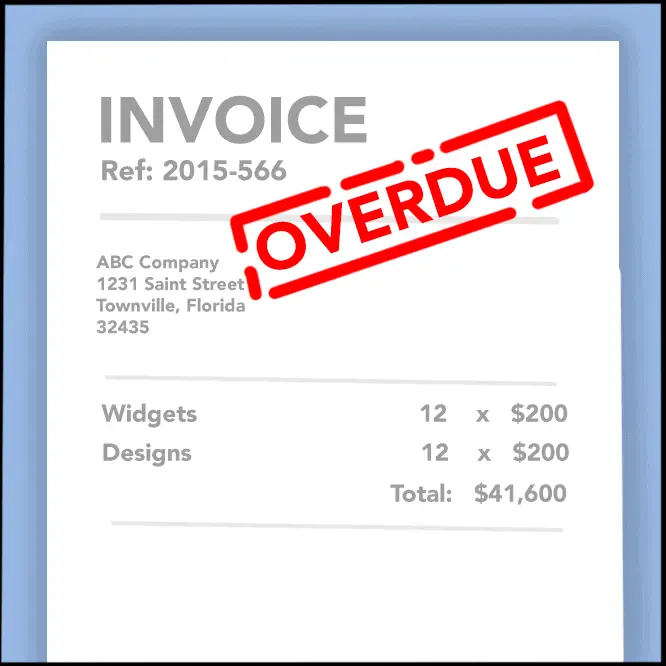
Late payments on NET 30 terms can definitely be frustrating, but luckily, there are ways to tackle the issue head-on. Making sure payments come in on time is crucial—it keeps your business running like clockwork and helps safeguard your important business credit score. Let’s look at some practical methods you can use to steer clear of those annoying late payments.
Automating Payments and Financial Tools
One great way to stay on top of things is to automate your payments. Financial tools and software are really helpful for making sure everything happens when it’s supposed to. By setting up an automated system, you can guarantee your payments go out on time without having to keep track of every single due date yourself. Here’s how these tools can assist you:
– Automated Reminders: You can set up alerts for upcoming payment dates so you’re always in the know.
– Scheduled Payments: Payments to your vendors or suppliers can be automatically sent out on specific dates.
– Financial Tracking: You can keep an eye on your spending and cash flow with real-time reporting.
Using these tech tools can cut down on human mistakes and reduce stress, making sure your NET 30 payments are handled smoothly.
Setting Clear Payment Reminders
Every now and then, just a gentle nudge is enough to keep things running smoothly. By setting up clear payment reminders, you can avoid missing deadlines and make sure your payments are always on time. Here’s how to create reminders that really work:
– Email Alerts: Send yourself and your team friendly email reminders just before payments are due.
– Calendar Notifications: Use your digital calendar to set up alerts well in advance of payment dates.
When you have clear reminders in place, everyone involved in the payment process stays on the same page, helping to keep your business’s credit rating strong.
Conclusion: The Long-Term Impact of NET 30 on Your Business Credit
Recap of Key Points
It’s really important to understand how late NET 30 payments can affect your business credit score. Here’s what we’ve discussed:
– Paying late under NET 30 terms can hurt your business credit score.
– If you consistently pay late, you might face higher interest rates and less favorable loan conditions.
– Keeping up with good payment habits is key to your business’s financial well-being and long-term success.
Encouraging Responsible Financial Behavior
It really pays off to encourage responsible money habits within your business. Here’s how you can make sure payments happen on time:
- Set up automatic reminders for when payments are due soon.
- Keep a close eye on your cash flow regularly to make sure you can cover your bills.
- Make sure everyone on your finance team understands why sticking to payment deadlines is so important.
By managing your NET 30 payments carefully and fostering a responsible financial mindset, you can protect your business’s credit score and improve your overall profitability. And hey, it’s never too late to start making positive financial moves for your company’s future!



